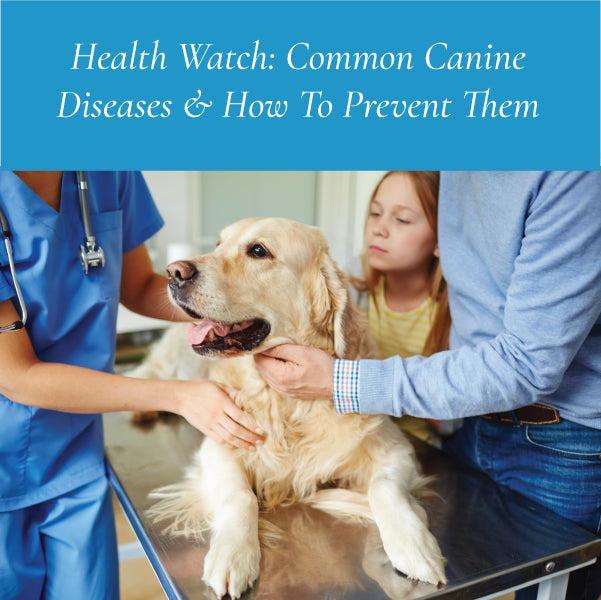Dogs bring endless joy into our lives with their loyalty, playfulness, and unconditional love. However, being a pet owner also means taking on the responsibility of ensuring our furry companions stay healthy and happy. Understanding common canine diseases and how to prevent them is crucial for every dog owner. This blog delves into some prevalent health issues dogs face, offering insights from veterinary experts on prevention strategies.
1. Parvovirus (Parvo)
Parvovirus is a highly contagious virus affecting dogs, often fatal if untreated. It's particularly severe in puppies and unvaccinated dogs. Symptoms include vomiting, severe diarrhea, lethargy, and loss of appetite. Prevention is primarily through vaccination, which is considered a core vaccine for all puppies and adult dogs.
Prevention Tip:
Vaccination: Ensure your dog is up-to-date on their vaccinations, including the parvo vaccine, which is typically given in a series of shots to puppies and then as a booster to adult dogs.
2. Canine Distemper
Canine distemper is a viral disease affecting dogs' respiratory, gastrointestinal, and nervous systems. Symptoms range from sneezing and coughing to seizures and paralysis in severe cases. Like parvo, prevention is through regular vaccination.
Prevention Tip:
Vaccination: A series of vaccinations for puppies followed by regular boosters throughout the dog's life can prevent this disease.
3. Heartworm Disease
Heartworm disease is transmitted by mosquitoes and can be fatal to dogs. It affects the heart, lungs, and blood vessels. Prevention is much easier and more cost-effective than treatment, which can be lengthy and expensive.
Prevention Tip:
Regular Preventatives: Administer monthly heartworm preventatives, which are available as chewables or topical applications. Also, keep your environment free from standing water where mosquitoes breed.
4. Rabies
Rabies is a fatal viral disease that can affect all warm-blooded animals, including dogs and humans. It's transmitted through the saliva of infected animals, usually through bites. Rabies vaccination is legally required in many places due to the risk to humans.
Prevention Tip:
Vaccination: Ensure your dog is vaccinated against rabies. The vaccine is usually first given to puppies and then as a booster every 1-3 years.
5. Lyme Disease
Lyme disease is a tick-borne illness that can lead to joint inflammation and other serious health issues in dogs. Symptoms may include fever, loss of appetite, reduced energy, and lameness.
Prevention Tip:
Tick Prevention: Use tick preventatives year-round and check your dog regularly for ticks, especially after walks in wooded areas. Consider vaccinating your dog against Lyme disease, especially if you live in a high-risk area.
6. Obesity
Obesity in dogs can lead to numerous health problems, including diabetes, heart disease, and joint issues. It's often caused by overfeeding and lack of exercise.
Prevention Tip:
Proper Diet and Exercise: Feed your dog a balanced diet and ensure they get regular exercise. Be mindful of treat intake and consult with your vet to establish an ideal weight for your dog.
Preventative care is key to keeping our canine friends healthy and happy. Regular vet checkups, vaccinations, and preventive treatments play a crucial role in warding off these common diseases. By understanding the risks and taking proactive steps to prevent these conditions, we can ensure our dogs lead long, fulfilling lives.
Sources
- American Veterinary Medical Association (AVMA): Provides guidelines on vaccinations and preventive care.
- VCA Hospitals: Offers detailed information on canine distemper and vaccination schedules.
- American Heartworm Society: Specializes in the prevention, diagnosis, and treatment of heartworm disease.
- Centers for Disease Control and Prevention (CDC): Offers comprehensive information on rabies and its prevention.
- American Kennel Club (AKC): Provides advice on tick prevention and Lyme disease in dogs.
- PetMD: Offers insights into managing and preventing obesity in pets.

